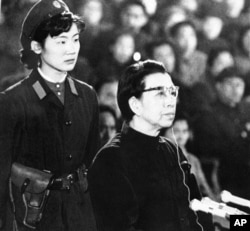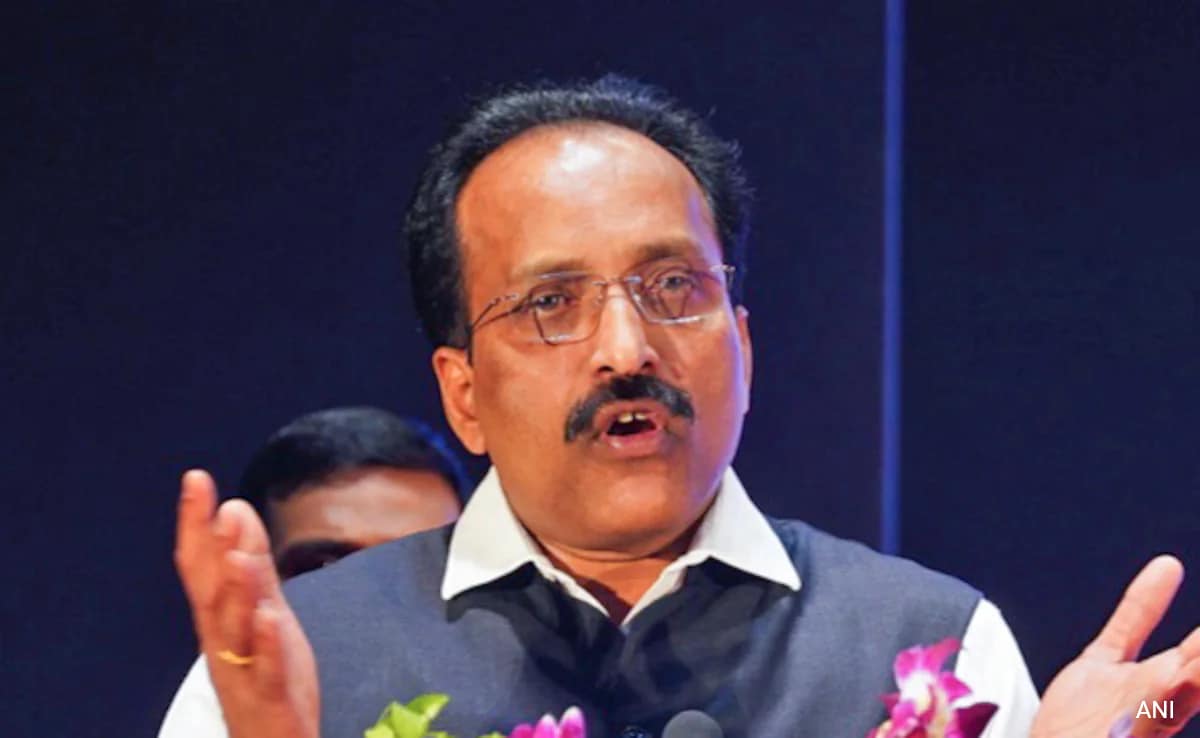As China’s biggest political gathering of the year concluded on Monday, analysts highlighted how power in the world’s second-largest economy continues to consolidate under leader Xi Jinping. Some also discussed two other prominent politicians – Prime Minister Li Qiang and Xi Jinping’s chief of staff Cai Qi – and their roles in Xi’s China.
Both Li and Cai are members of the Politburo Standing Committee, the highest decision-making body of the Chinese Communist Party. Li is ranked second in the PSC and Cai is ranked fifth. Both are considered Xi Jinping loyalists and were hand-picked by the Chinese leader to serve in their current positions.
Their relationship with Xi Jinping also goes back decades.
Tsai worked with Xi Jinping in the 1980s, when he was sent to China’s southern coastal province of Fujian. They later worked together in Zhejiang, where Xi Jinping rose to become provincial party secretary.
Li Keqiang also worked with Xi Jinping in Zhejiang, where he held a number of positions, including secretary of the Shanghai Municipal Party Committee, before becoming current prime minister.
Some analysts say that during this year’s Two Sessions, Li Keqiang’s power as prime minister responsible for economic decision-making was weakened, while Tsai’s power responsible for maintaining stability was increased because China paid more and more attention to economic development. National Security.
Wang Xinxian, a distinguished professor at the Institute of East Asian Studies at National Chengchi University in Taipei, said that a major focus of this year’s meeting is the revision of the Organic Law of the State Council. The changes to the law, the first since 1982, give the Communist Party more administrative control over the State Council.
“Li Qiang is in charge of State Council affairs, including economic, social, industrial, development and other affairs, while Cai Qi is in charge of security and party affairs.”
Wang said. “This division of labor is becoming more and more clear, so some people overseas say that this is the ‘Gang of Three’, namely Xi Jinping, Li Qiang, and Cai Qi.”
China also abandoned a 30-year tradition at this year’s meeting and canceled the prime minister’s press conference at the end of the meeting. Analysts say both moves reduce the status of Li Keqiang and his State Council.
Tsai, by contrast, ranks fifth in China’s leadership but is the first person to become the president’s top aide since the days of China’s former revolutionary leader Mao Zedong. He has accompanied Xi Jinping on many trips and met with foreign leaders, including U.S. President Joe Biden in November last year.
Lin Heli, a senior researcher at the Jamestown Foundation in Hong Kong, said that since winning an unprecedented third five-year term in 2022, Xi has emphasized that the party leads everything, including the economic and financial fields.
Lam Cheng Yuet-ngor said that Xi Jinping’s concentration of power even exceeds that of Mao Zedong.
“Even during the Mao Zedong era, [he] If Mao wanted to have all the power in his own hands, he had to [delegate] Part of the power, especially because Mao Zedong didn’t know much about economics.So, he is still [handed it over to] There are people in the party like Chen Yun and Deng Xiaoping who know something about economics. “
Cai Shenkun, an independent American social media commentator with 288,000 followers on X (formerly Twitter), agreed, calling Li and Cai nothing more than “minions taking orders in front of Xi Jinping.”
But other analysts such as Deng Yuwen said the two still have their own interests and are highly competitive with each other. Deng Xiaoping, a political commentator and former deputy editor of the party magazine Study Times, coined the term “gang of three” to refer to the Xi-Li-Cai power circle.
The phrase refers to the “Gang of Four” led by Mao Zedong’s wife Jiang Qing during China’s tumultuous Cultural Revolution. Deng Xiaoping believed that the political power dynamics of Xi, Li, and Tsai today have similarities to those of Mao Zedong, his wife, and Lin Biao, another important leader at the time.
Lin Biao was one of Mao Zedong’s greatest supporters and at one point his designated successor, but he died in a mysterious plane crash in 1971 after being accused of fleeing China as a “traitor”, according to the Chinese Communist Party. Scholars point to a lack of evidence to support the party’s version of events, and some believe he is evading a possible purge.
Jiang Qing was an important figure in China’s Cultural Revolution from the mid-1960s to the mid-1970s, a movement that suppressed traditional Chinese culture and led to the persecution and death of millions of people. After Mao Zedong’s death in 1976, she was purged and imprisoned as a member of the “Gang of Four”, a group accused of being the extremist element of the Maoist movement.
Deng said Li, Tsai follow Xi Jinping’s orders Just like Lin and Jiang did to Mao Zedong. But unlike Lin Biao, whose influence over the military provided him with a power base to be seen as a challenge to Mao, Li and Cai “Completely relying on Xi’s hand. … Therefore, as far as their relationship with Xi is concerned, the two of them have no capital to dare to disobey Xi. “
Nonetheless, Deng Xiaoping said he believed Li Keqiang was seeking to be named Xi Jinping’s successor.
Zhuang Jiayan, an associate professor of political science at the National University of Singapore, said Lee and Tsai must be cautious and not show too much ambition, otherwise they will arouse suspicion not only of Xi Jinping but also of their colleagues. Zhuang said that looking at the history of the Communist Party, whoever emerged as a possible successor too soon was likely to run into trouble.
“I think it’s difficult for them to pursue a position more formally in this environment,” Chong told VOA. “If you do it too obviously, you become a target.”
Wang of National Chengchi University said Xi’s succession is not yet an issue and may not be for years to come as he can always be re-elected by his peers for an unprecedented fourth term in 2027.
In 2018, China’s National People’s Congress abolished term limits for the president, potentially allowing 70-year-old Xi Jinping to remain head of state for life.
Follow us on Google news ,Twitter , and Join Whatsapp Group of thelocalreport.in

















